|
It turns out that even with my couch potato self, my memory would be very good. Even better, in fact, if I ate no junk food at all. I know I was very surprised at this result; was I being lied to my entire life? Should I give up my boring chicken and rice for the more tasteful junk food? Of course, my data is highly suspicious, so I would definitely need to repeat my experiment multiple times. However, for my question, “How does junk food affect the progeny of fruit flies?” the answer was junk food increased the memory of the larvae ( the “children”) of fruit flies. As you can see from my graphical abstract, I originally believed that those that ate junk food would have bad memory. This turned out to be very incorrect. I used the larval memory assay for my procedure. Essentially, I got the larvae of the fruit flies and trained them to associate a banana scent with a reward. I measured the percentage that went to the banana scent when placed with a banana scent and another rewardless scent. As it turned out, the larvae that were given Doritos and Oreos were about 80% likely to go to the banana scent while the larvae that were given no junk food at all were about 50% likely to go to the banana scent. Strangely enough, 50% of the larvae given chips also went to the banana scent, which was unlike the other junk foods. Of course, this data is very interesting that can definitely be explored deeper.
0 Comments
The most challenging part of this experiment was discovering how to measure addiction. For this, I had to design my own assay. This was difficult, but also rewarding, as there’s satisfaction in knowing I did something no one in the program has ever done before. To measure addiction, I used capillary tubes filled with the pre-workout drug and an attractive solution. If the flies were addicted, the drug capillary would drop the most over a couple of days. With my practice talk approaching, I am both excited and nervous. I am slightly nervous to present to a large crowd, but I am also excited to show how much I have learned, and I want to showcase the skills I have gained. Participating in the TRIP program has been one of the best decisions I have made. Not only did I gain memories with great people and skills that will help me beyond the lab, but I now know that I have a passion for research science and working in a lab. TRIP has shown me that the lab is a workplace where I am challenged, curious, and comfortable. Even though I will be studying Chemical Engineering instead of Biology, I now know that the lab is the place for me.
With the ever-increasing usage of antidepressants in the world, I thought it would be interesting to use antidepressants, as both adults and teenagers consume them. In fact, more teenagers start using antidepressants as early as high school, and it is possible that hindered fertility rate could be a long-term effect. Therefore, over the last several weeks, I’ve tested whether Paroxetine, an antidepressant, could reduce fertility and worsen the health of progeny; then, could natural supplements, specifically Red Clover, counteract that impact? After several trials of data, my conclusions proved me partially right AND partially wrong. My hypothesis was correct in the sense that Paroxetine decreases fertility, while Paroxetine WITH Red Clover together would increase it. However, surprisingly, neither Red Clover nor Paroxetine affected the health of the progeny at all. Even more shocking, Red Clover ALONE negatively affected fertility, which was the exact opposite of what I had thought would happen.
(: It’s been a blast, guys. Here’s to everyone who made this a great adventure!
Coming in to William Tennent High School, setting up my lab station, and getting lost in unanswered questions… well, I wouldn’t want to spend my Saturdays any other way! This internship has made me realize how much is unknown in so many different fields of science, but it has also taught me that I have the ability to try to answer some of those questions. As a teenager, being able to collaborate with PhD researchers one on one to try to answer some of these questions is an amazing experience that I simply cannot describe with words.
The first few times I set up my experiments, I felt extremely out of place… I felt that I had absolutely no idea what I was doing… that maybe I could just get by if I didn’t ask too many questions. Wow, have I changed since then! After a couple times of sorting flies, setting up my centrophobism assay, and crushing flies to analyze their gut microbiomes, I started to get the hang of it. The further I got into my research, the deeper my curiosity got into my question. “What about different concentrations?” “What about different genders?” “Is too much turmeric bad for you?” “Why does the microbiome look like that?” And eventually, it all started to come together. Looking back at the start of this journey, I remember applying to the program thinking “haha alright well at least you tried… but there’s no way you’re getting in.” The fact that I not only completed this internship, but also loved it so much, has given me an invaluable asset: an idea of what I may want to do with my life. Through this internship I have learned that research is so much more than looking up facts and corroboration and correlation… research is an outlet for creativity. All of the hypotheticals that standard education tends to deviate away from flourishes in the lab and through research. I could get lost in questioning why things occur the way they do, and that’s an amazing feeling; a feeling I experienced every time I worked on TRIP-related material. I am not quite sure what I am going to do with my Saturdays moving forward… it’s going to be weird not going to the lab, but as I approach the end of this internship, I would like to say thank you to TRIP. Thank you for giving me access to a lab to conduct experiments I wanted to. Thank you for providing me with the information I need to be a good researcher. Thank you for helping me decide what I may want to do for a living. Thank you for helping me face my fear of insects. Thank you for helping me realize who Ravi Arya is. I may be ending my journey with TRIP, but the connections I have made and the skills I have learned will stay with me for as long as I live.
Thank you for an amazing journey. 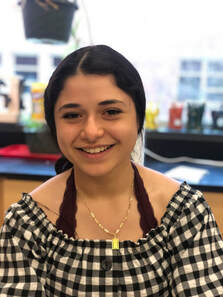 I don’t think I’ve been hit yet with the fact that TRIP is over. I feel like only next Saturday, when I’m back at work, sitting at a desk rather than in a lab surrounded by living creatures and ever-fleeting minds, will the realization hit me the hardest. TRIP didn’t just single-handedly give me the exposure of a lifetime to what STEAM truly is, but it also grounded me in a way that I could still adapt as a number-cruncher without having to give up my artistic abilities. That is why I title my final blog The Horizon… it’s what TRIP becomes after it collides the worlds of art, psychology, and human interaction skills together into a single class room lab. And it was that very environment that later on led me to come up with my independent project: the study of counteracting the negatives of sleep-deprivation by altering diet. Originally, I found it impossible to thin down my list of potential idea choices to a single experiment because of the enthusiasm that our three instructors would constantly fuel us with. However, my independent project ended up being about what I chose to sacrifice for TRIP along with school and sports and extracurriculars: sleep! But don’t get me wrong; if I could organize my time properly, this wouldn’t be a conflict at all, especially considering the fact that I’ve been sleep-depriving myself way before I knew about TRIP. However, curiosity struck me once I found myself thinking about the build-up of all these years, and surprisingly, my experiment revealed that sleep-deprivation did in fact increase both memory and socialness. Great, I thought! Now I could walk out with no fear of having future-me affected. But there was more to it. Some trials failed. Others were questionable. Some results I still simply don’t understand the science behind, and maybe I never will know what occurs behind every failed trial - behind every anomaly born out of even the most perfect executions. But it's these little enigmas I fear may never unravel that are what drive us down every future opportunity that TRIP has paved for us. One of the most important things I learned from this experience is that you get what you put into a project; if you want results, you have to work diligently for them. I’m so thankful to have been given the opportunity to be a part of the TRIP family, and I am so sad that I won’t be able to see everyone on Saturdays after this week.
Although it may be the end of my independent project, my new TRIP family will always be a part of my life and my story. Thank you to everyone that supported me through this process! My research was about how different fatty acids affect recovery from head trauma, and to perform my experiment, I gave my flies head trauma and then fed them either coconut oil, mustard oil, or no oil at all. To see the effect of the oils on recovery from head trauma, I measured the activity levels (or locomotion levels) of the flies using the negative geotaxis assay - the flies that displayed greater locomotion had better recovery from head trauma than the flies with less locomotion.
Finally, I’ve made many new friends during my time in TRIP. We all come from different schools, have different interests, and we all worked on different projects - but the one thing we all have in common is our interest and love for science. That’s what brought all of us to TRIP in the first place! It’s awesome to be able to talk about your thoughts to people who understand you, and it’s equally awesome to listen to the ideas that other people have as well.
|
Archives
April 2024
Categories
All
|
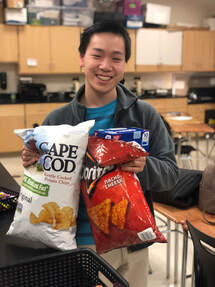
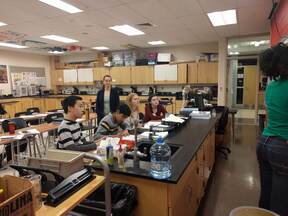
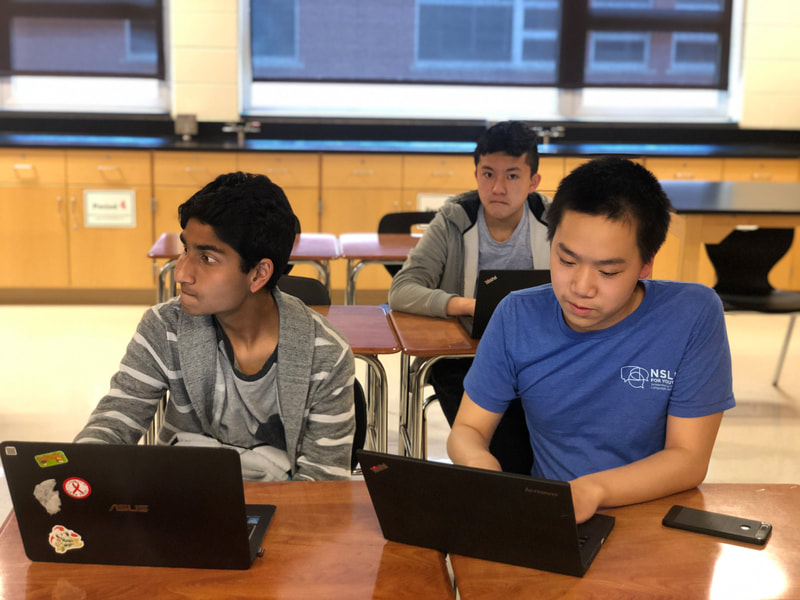
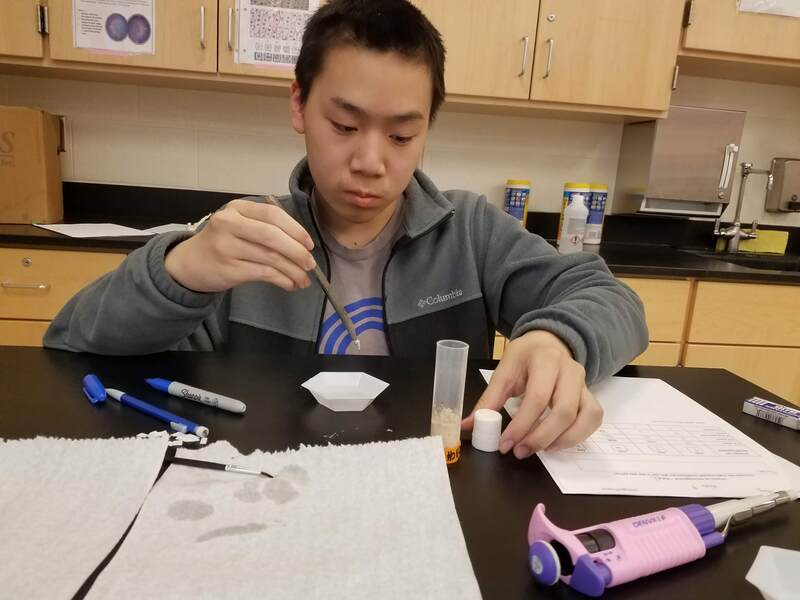
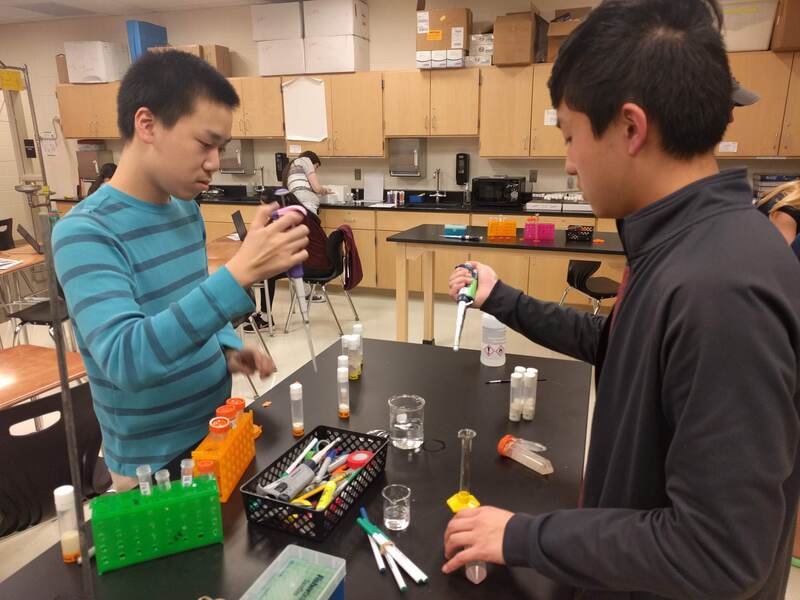
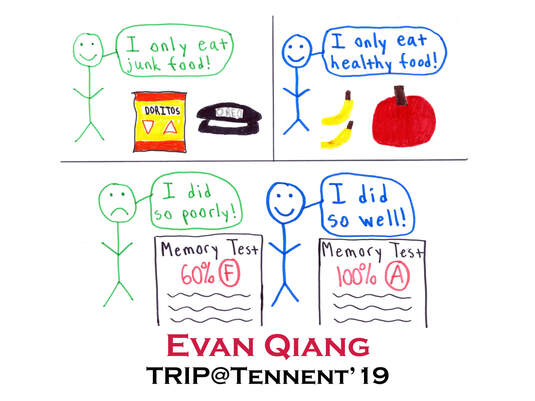
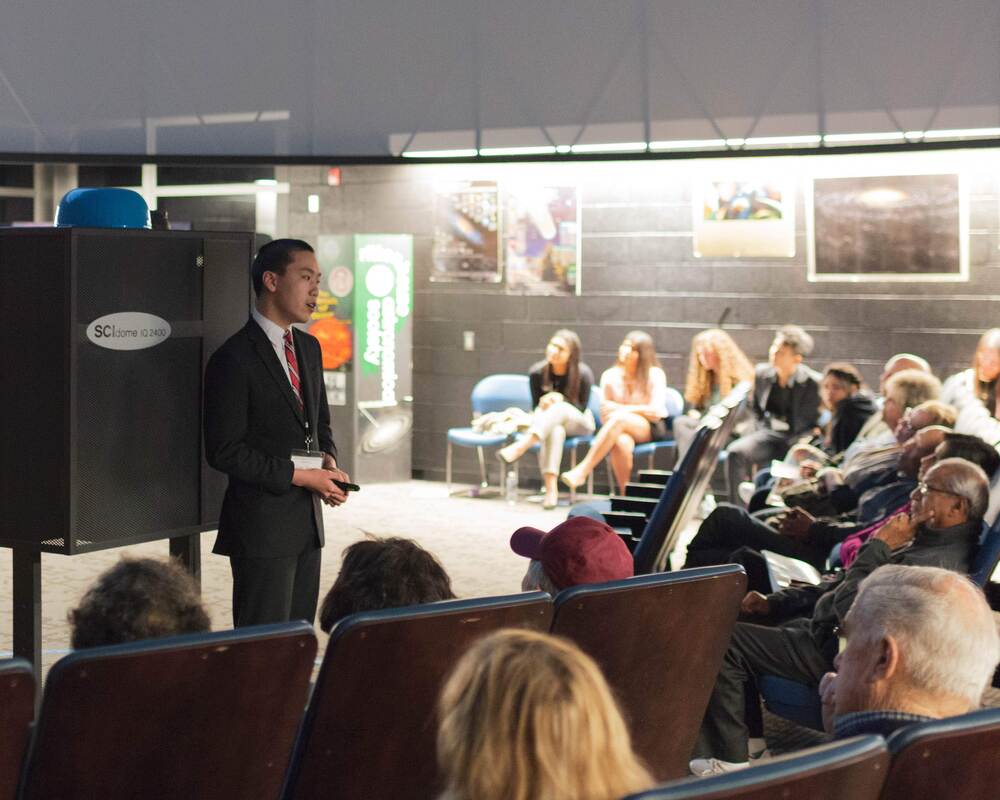
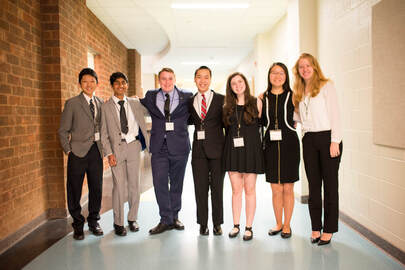
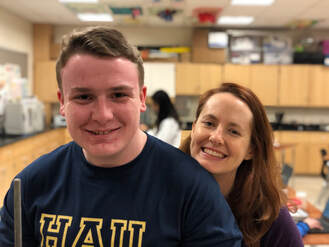
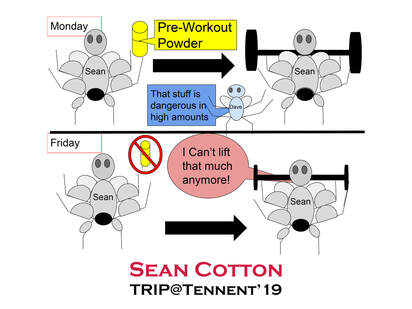
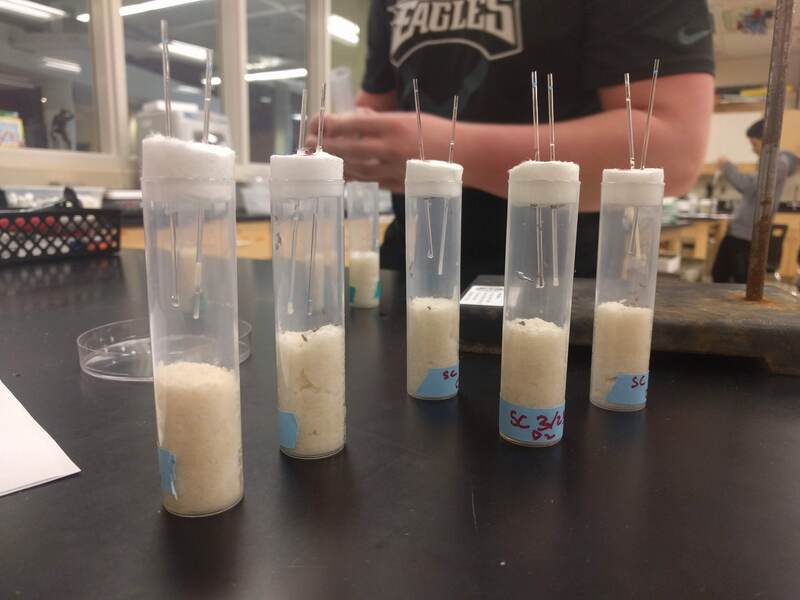
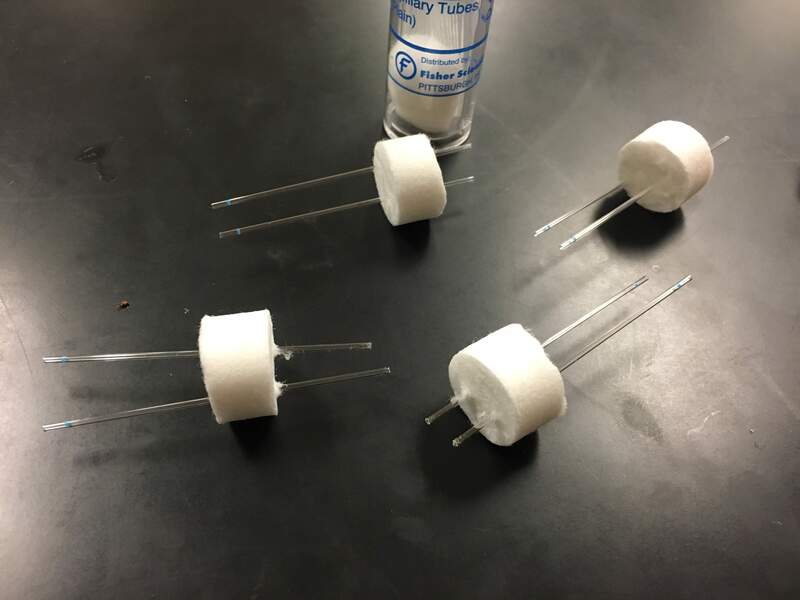
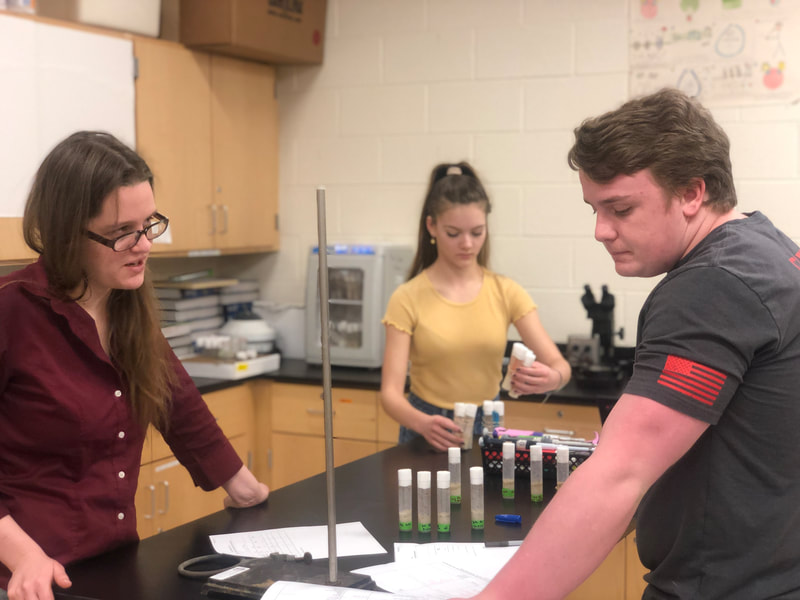
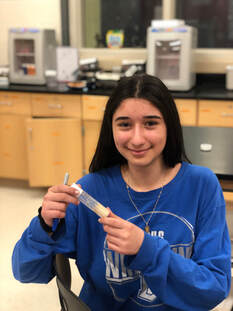
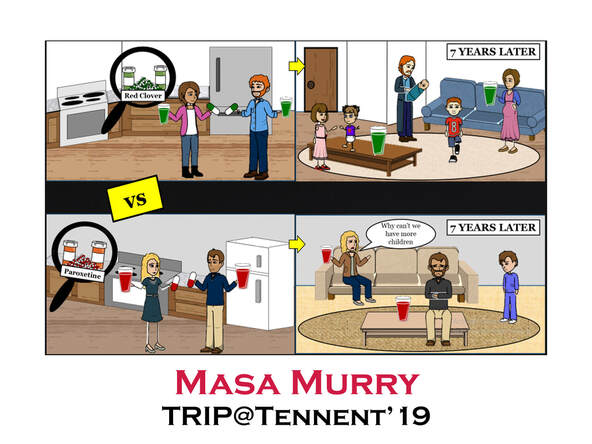
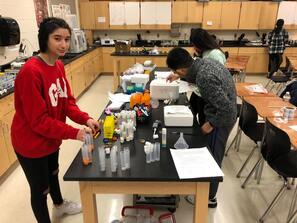
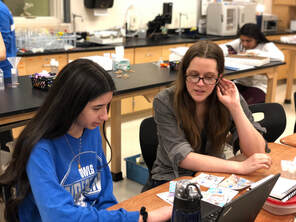
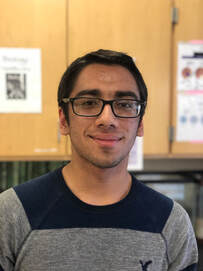
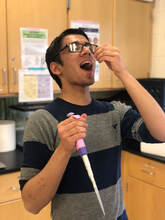
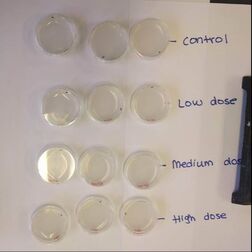
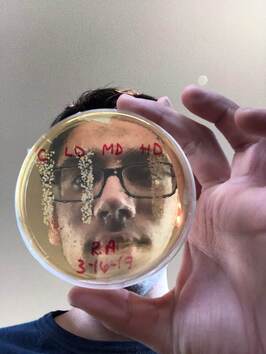
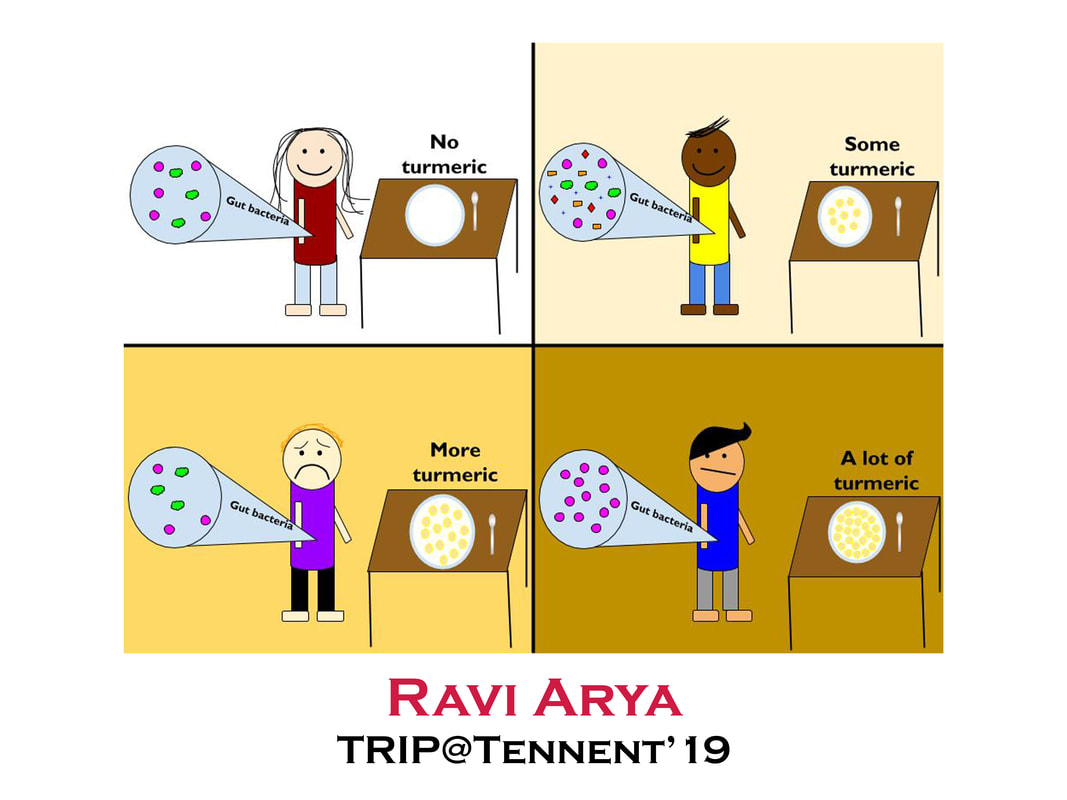
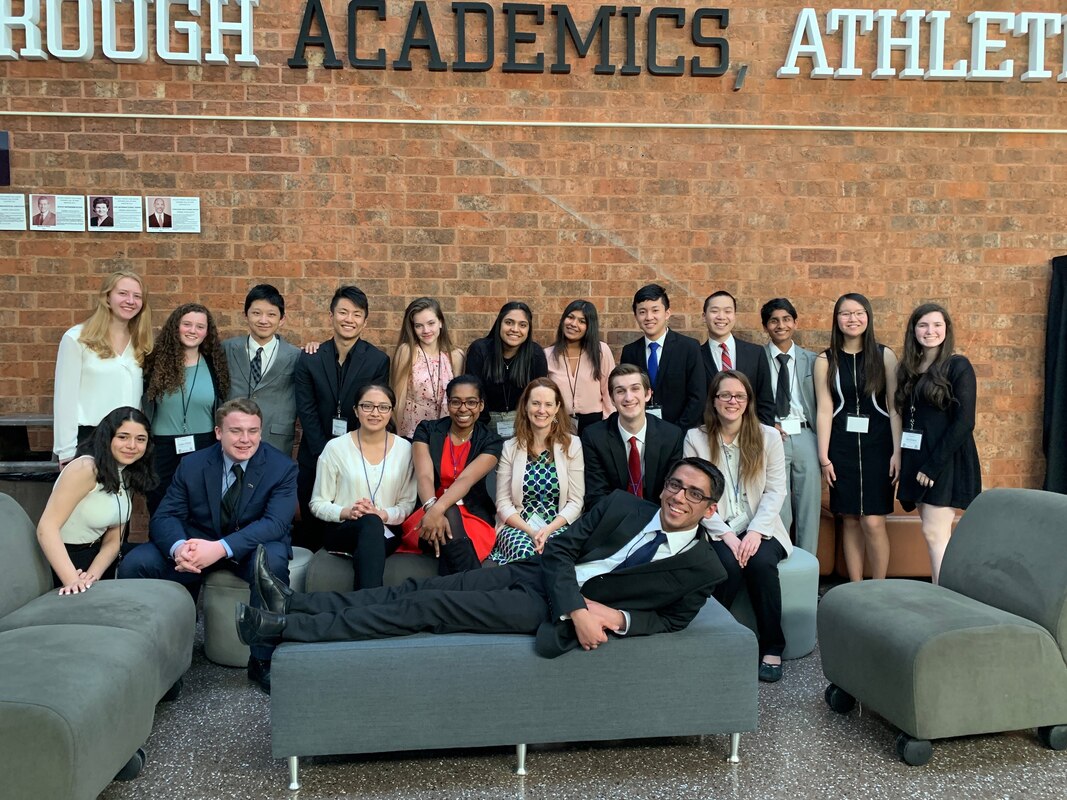
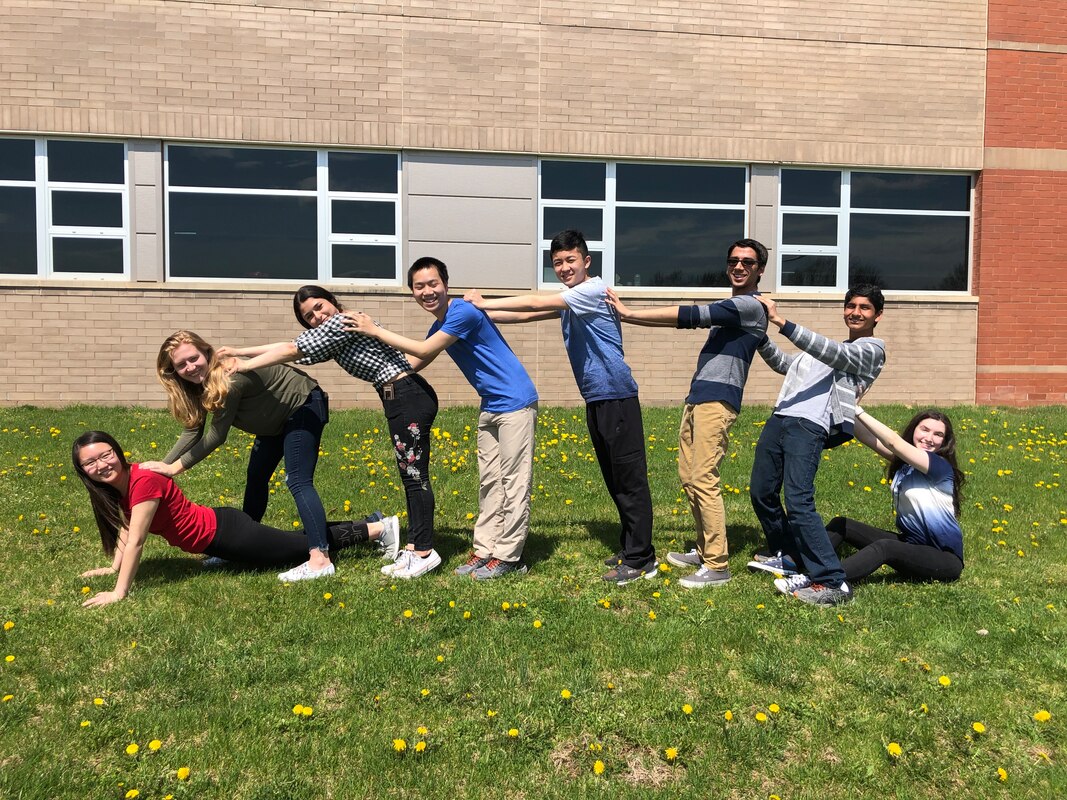
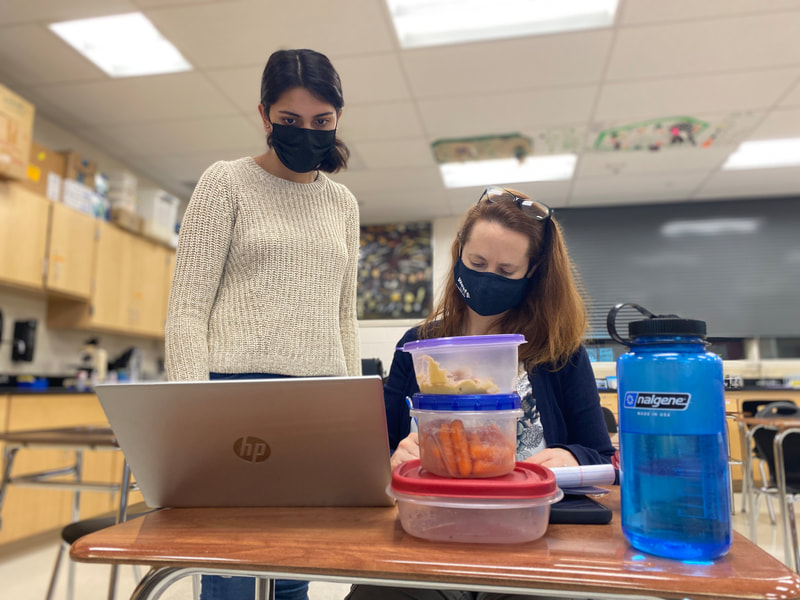
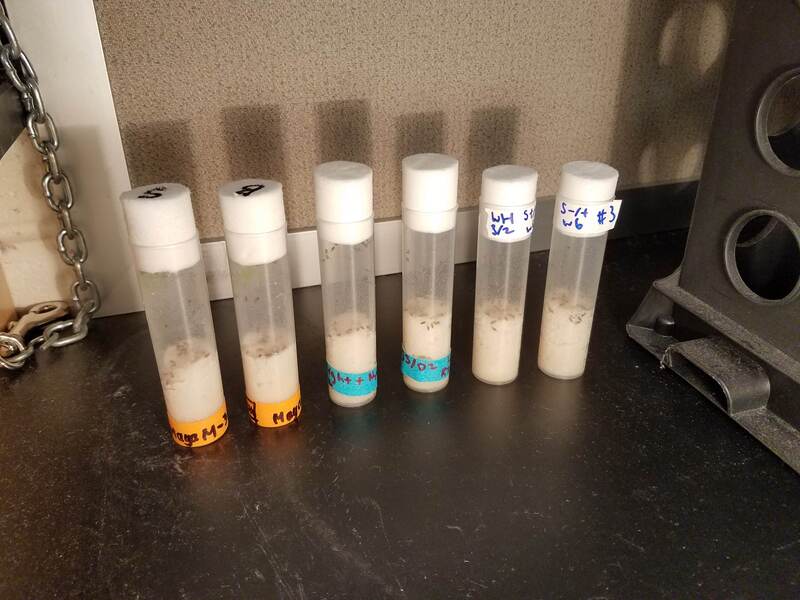
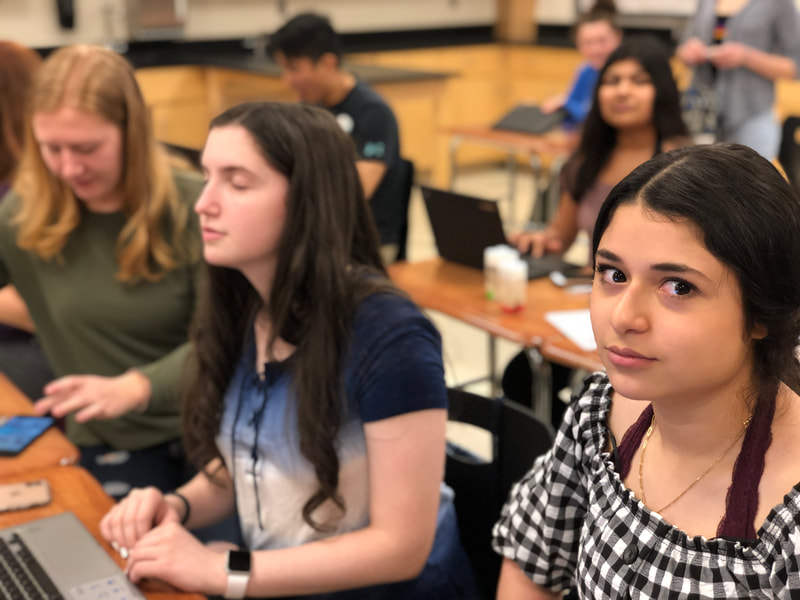
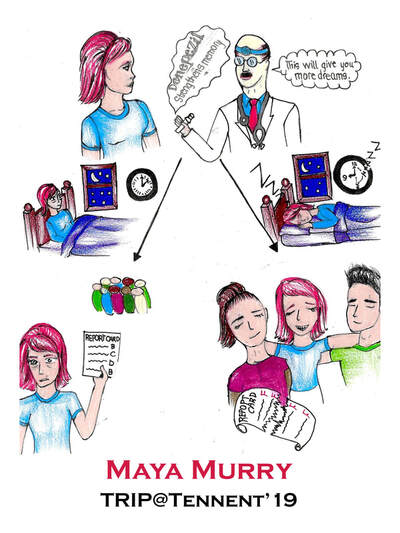
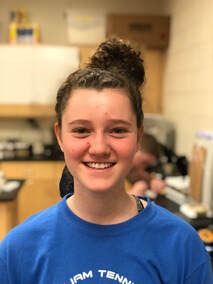
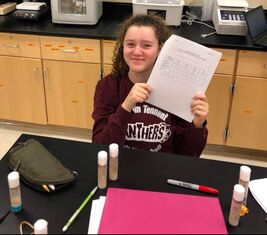
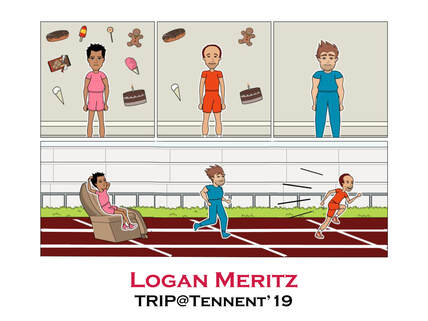
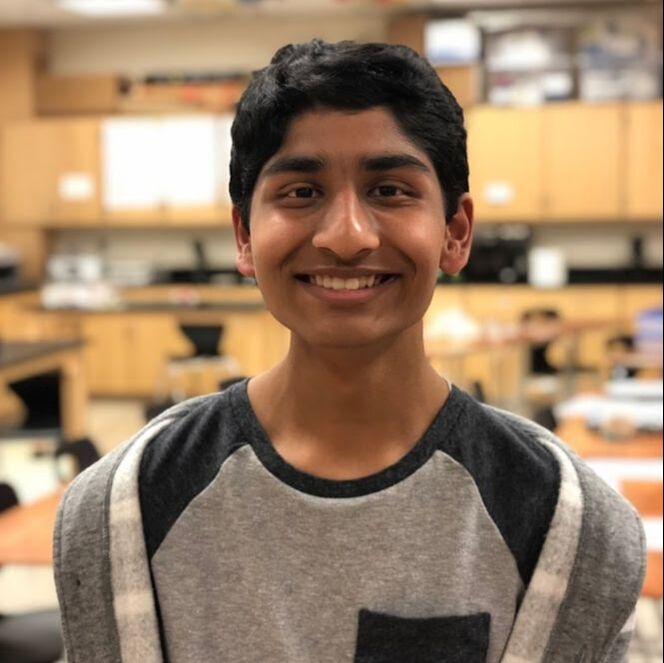
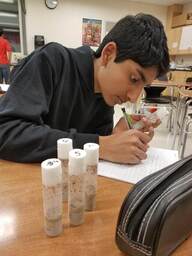
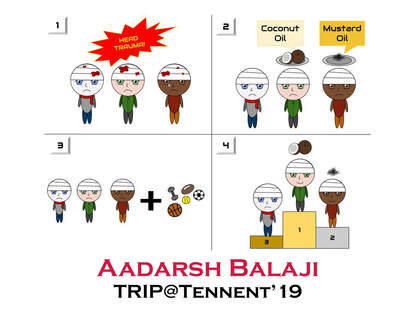
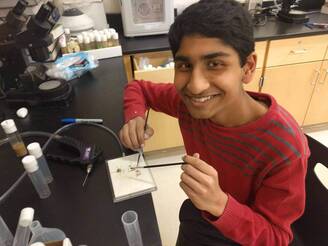
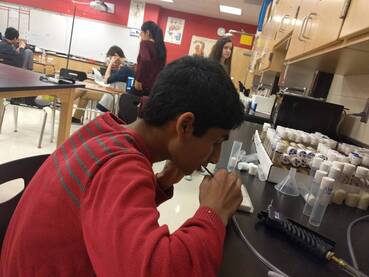
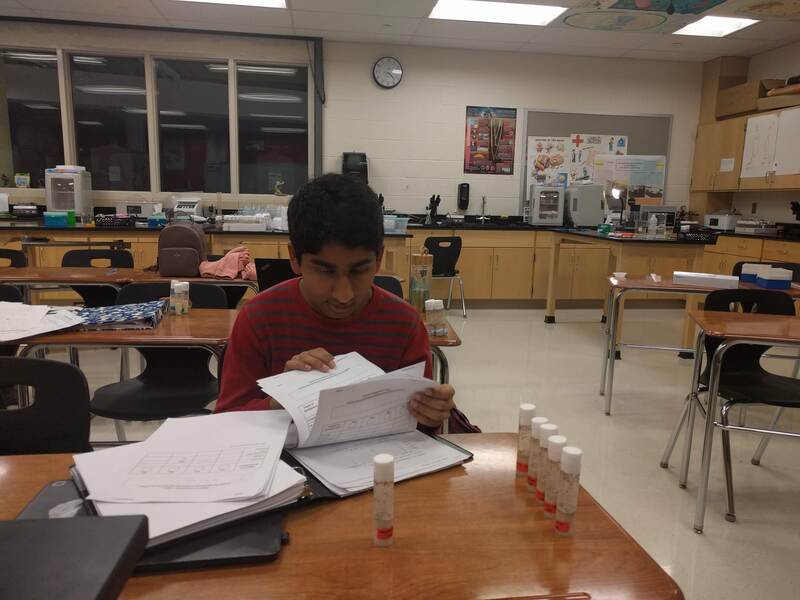
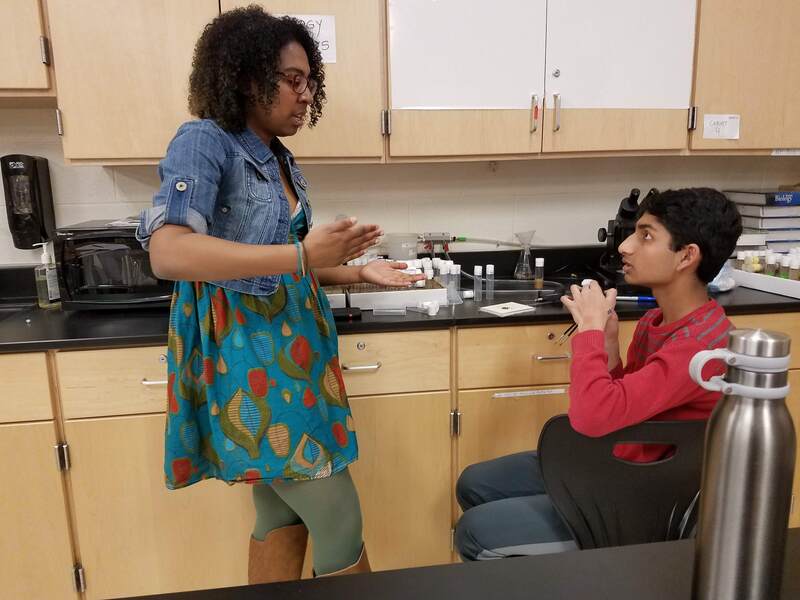
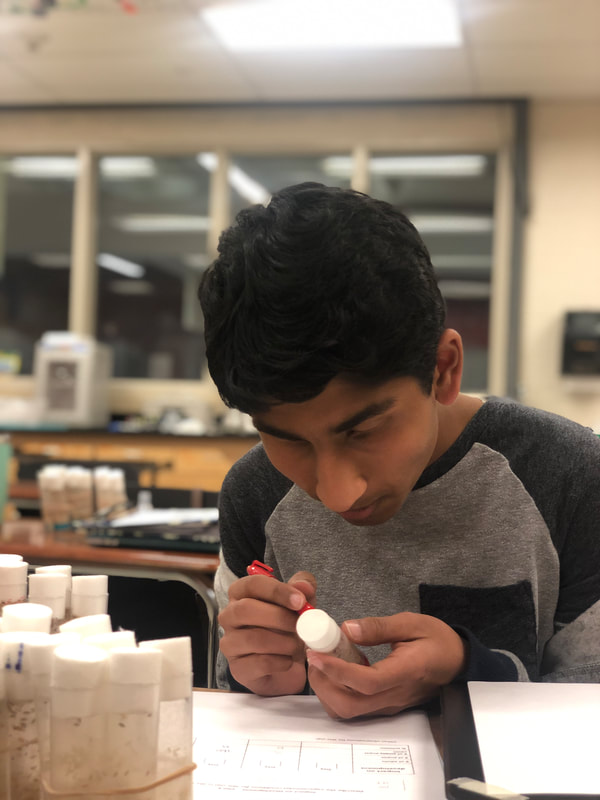
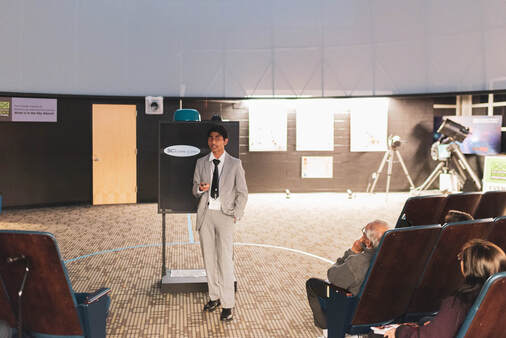
 RSS Feed
RSS Feed